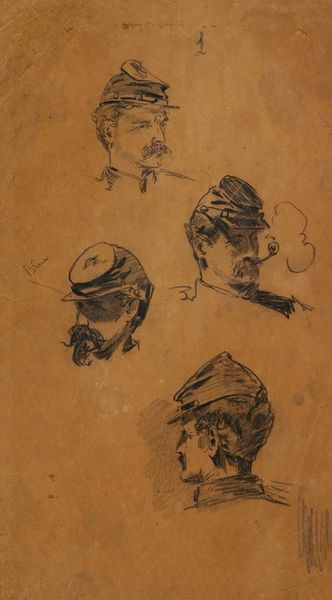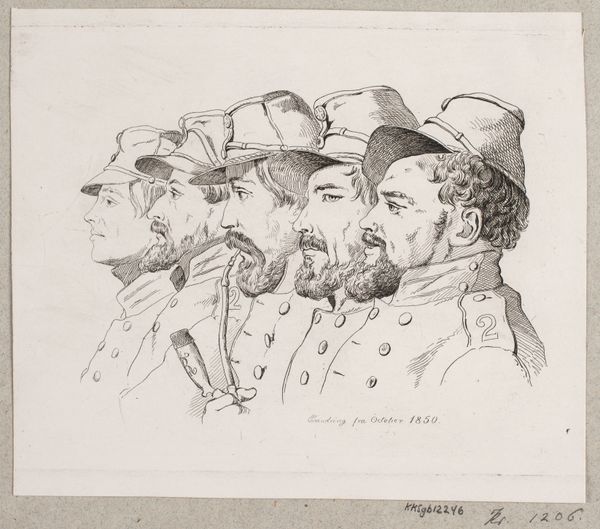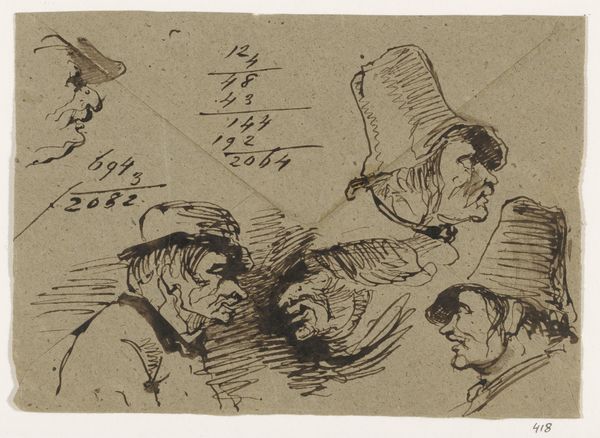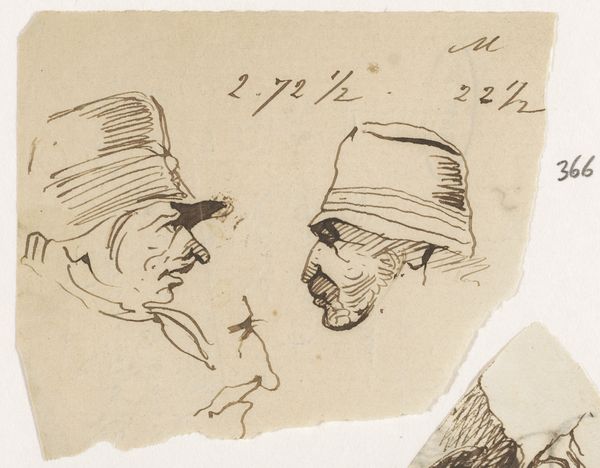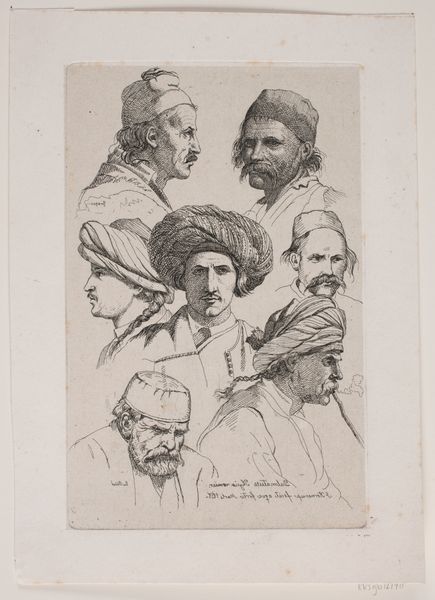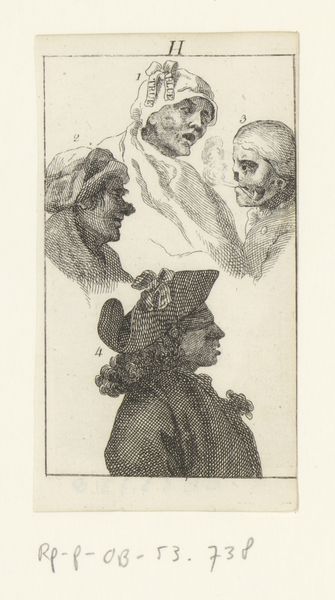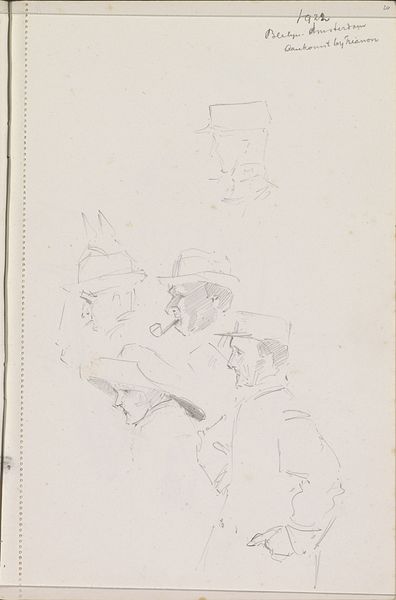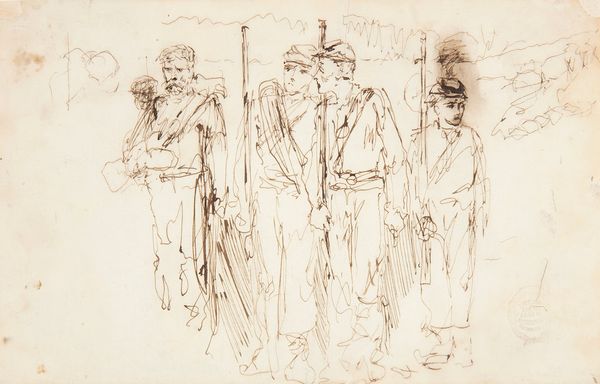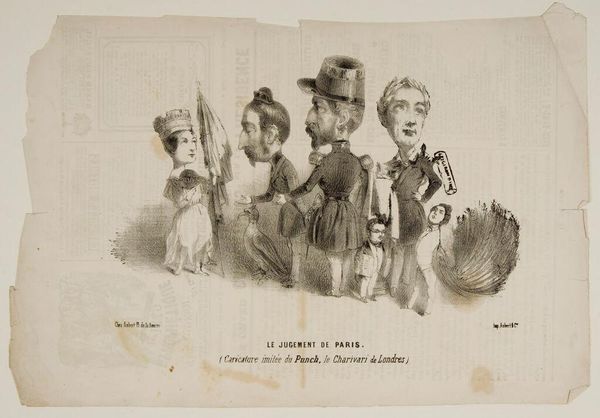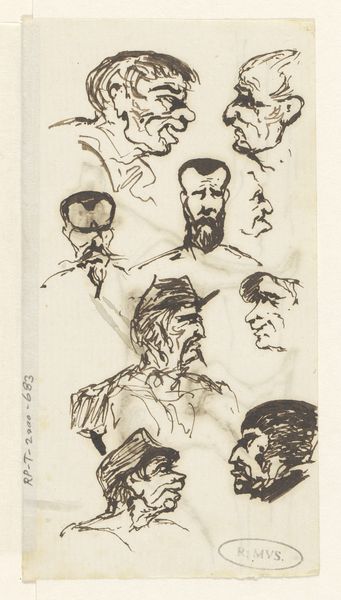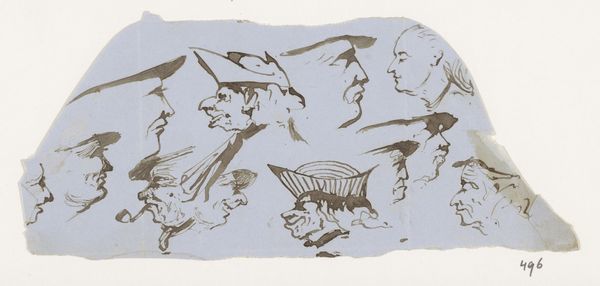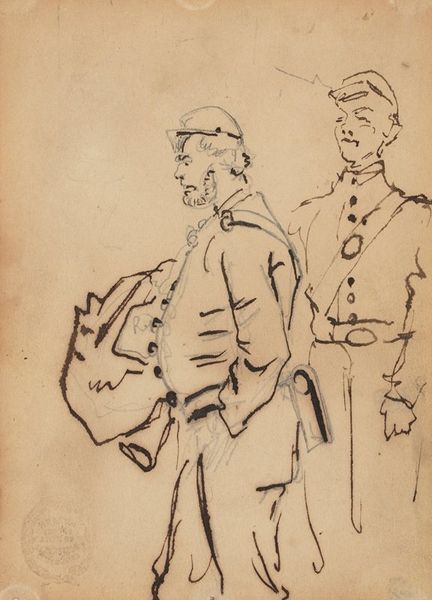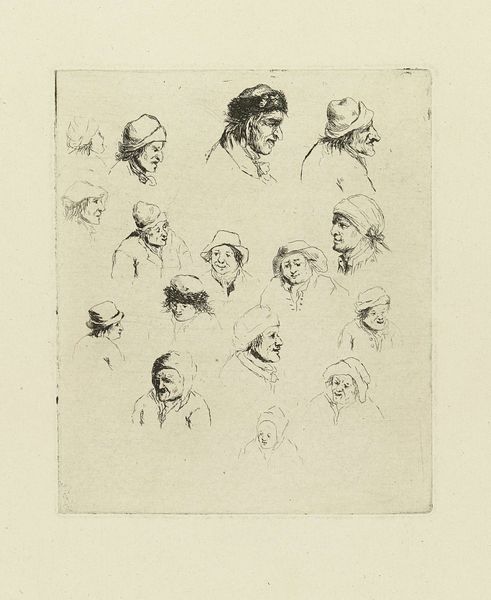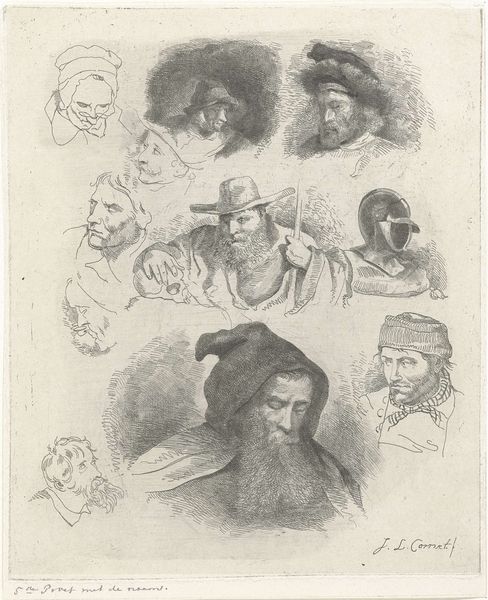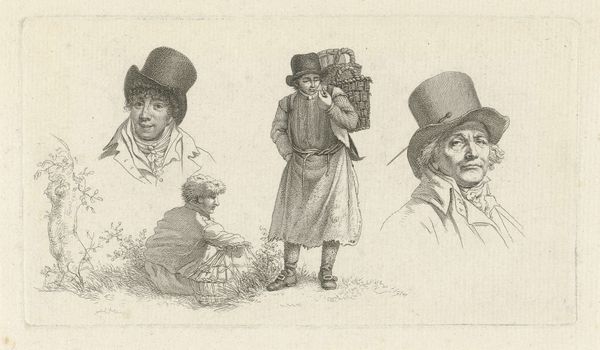
drawing, paper, ink
#
portrait
#
drawing
#
amateur sketch
#
thin stroke sketch
#
head
#
incomplete sketchy
#
figuration
#
paper
#
ink
#
idea generation sketch
#
sketchwork
#
hand drawn
#
sketch
#
rough sketch
#
line
#
scratch sketch
#
fantasy sketch
#
initial sketch
Copyright: Public domain
Theodor Kittelsen made this pen and ink drawing, titled "Barndomstegninger," which translates to "Childhood Drawings" in English, sometime during his career. The composition is quite simple: an assortment of male faces, rendered with varying degrees of completion. While seemingly basic, the drawings offer insights into the social and artistic environment of 19th-century Norway. Kittelsen, a celebrated artist, often depicted the landscapes and folklore of his homeland, frequently infusing his work with a sense of national identity. This drawing, though less overtly nationalistic, reflects a prevailing interest in representing the common man. The faces, likely studies from life, may represent a conscious effort to capture the diverse characters of Norwegian society. Were these intended as studies for a larger composition? Were they an attempt to represent the physiognomy of the Norwegian people? To understand Kittelsen’s motivations fully, we might consult the artist’s biographies, studies of Norwegian folklore, and analyses of the cultural politics in Norway at the time. Artworks such as this remind us that context is essential for unlocking deeper meanings within art.
Comments
No comments
Be the first to comment and join the conversation on the ultimate creative platform.
